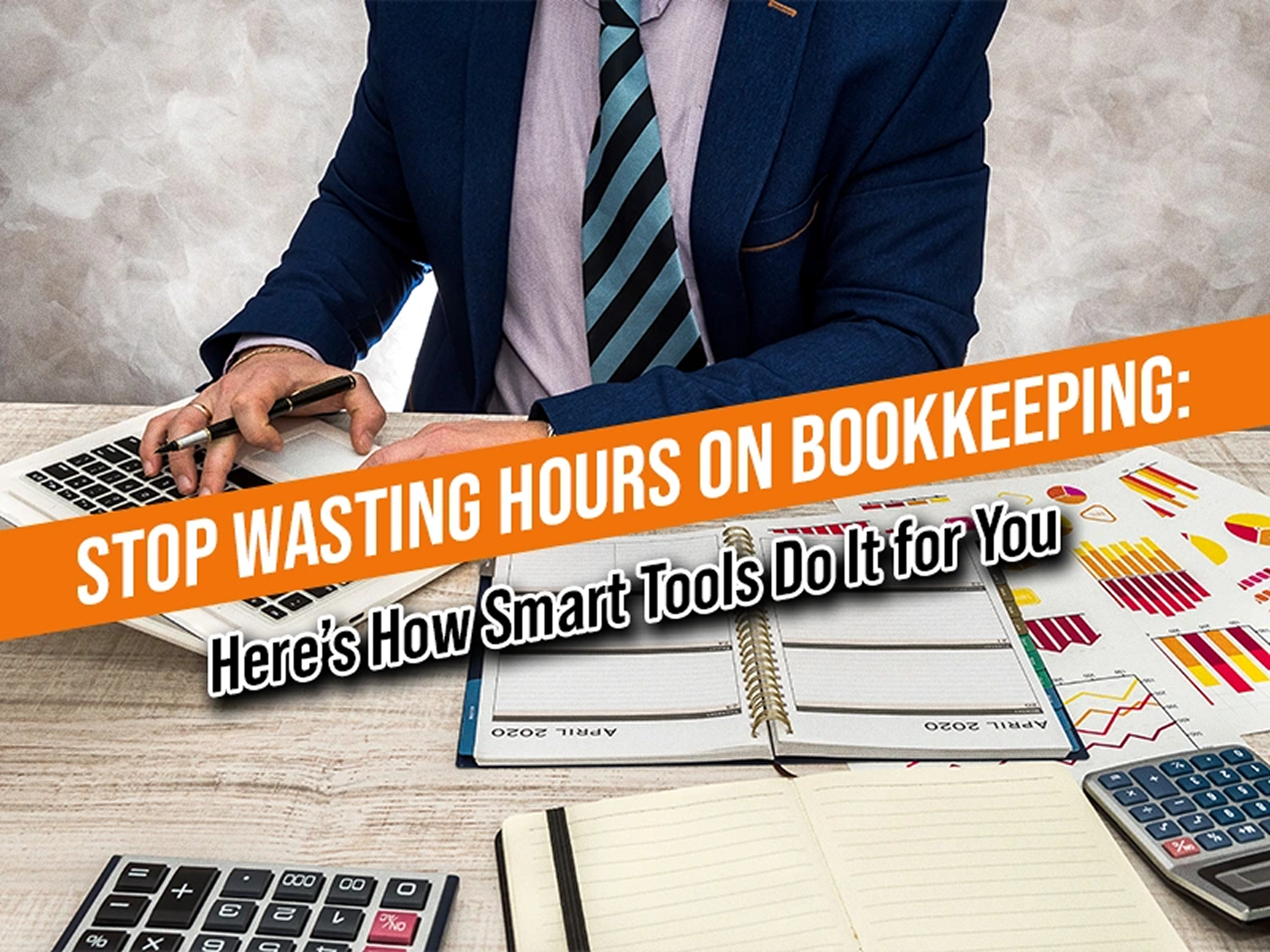
Stop Wasting Hours on Bookkeeping: Here's How Smart Tools Do It for You
Let's face it—you didn't start your business to get tied down with bookkeeping all day. But a common complaint most entrepreneurs have is that they spend a major portion of the day buried in spreadsheets, reconciling transactions, or chasing down receipts. Well, the good news in 2025 is that you don't have to anymore.
As AI takes the world by storm, it's hardly probable that the bookkeeping world stays immune! The new generation of AI-powered bookkeeping tools is helping small businesses automate tedious and repetitive, but essential, manual bookkeeping tasks, reducing costly errors, and gaining real-time financial insights, without hiring a full-time accountant.
Let's understand how you can leverage AI to transition from manual chaos to smart, streamlined, and automated systems.
The Real Cost of Manual Bookkeeping
Bookkeeping isn't just tedious—it's also expensive. According to recent studies, small business owners spend an average of 10-15 hours per month on bookkeeping tasks. That's time you could be spending on growth, strategy, or even just getting a full night's sleep.
Manual bookkeeping also increases the risk of:
- Data entry errors
- Missed deductions
- Late tax filings
- Cash flow blind spots
And if you're relying on spreadsheets or outdated software, you're not just wasting time—you're not optimized to your full potential.
Leveraging AI to Eliminate the Tedious Tasks
There is a smart way to minimize the time spent on bookkeeping tasks, and it involves employing the latest advanced tools at your disposal, such as cloud-based accounting software and automated expense management systems. These tools make your data entry, reconciliation, and expense tracking tasks more efficient, so you save time and decrease the possibility of errors.
Transition to Cloud-Based Accounting Solutions
Optimized Data Entry Processes
Use cloud-based accounting platforms such as QuickBooks and Xero to facilitate the automation of data entry by directly importing transactions from bank accounts and credit cards, so you don't have to do the same manually.
Streamlined Bank Reconciliation
With cloud-based accounting tools, you no longer have to reconcile your bank statements with your books manually. These tools enhance the bank reconciliation process by aligning transactions with their corresponding invoices and receipts, thereby minimizing manual effort and reducing the possibility of errors.
Real-time Insights
Cloud-based accounting tools also make it possible for you to obtain financial reports like the profit and loss account and balance sheet in real time. This enhances the decision-making process in the organization and makes financial analysis much more relevant.
Digitize and Simplify Expense Tracking
Receipt Capture
You can now use apps like Hubdoc or Dext to capture and organize your business receipts and invoices immediately, so the chances of oversight and forgetting to account for these expenses decrease.
Smart Categorization
AI-based expense tracking tools get the work of categorizing your expenses done automatically. This saves a whole lot of time on manually sorting and entering these into your accounts books.
Centralized Data Storage
Cloud-based accounting makes it possible to store all of your business's expense-related information in one location that can be easily accessed from anywhere either for bookkeeping or reporting purposes.
Smart Bookkeeping Tools For Seamless Financial Management
AI-powered bookkeeping tools are transforming how businesses manage their finances. These platforms use machine learning to automate data entry, categorize transactions, reconcile accounts, and even generate financial reports—all in real time.
Let's explore some of the top bookkeeping tools you can use to simplify your 2025 financial workflow:
- QuickBooks Online Advanced — QuickBooks still leads the pack and is the gold standard when it comes to bookkeeping for small businesses. Offering AI-powered insights, smart categorization, and predictive cash flow forecasting, QuickBooks is ideal for businesses that want a familiar interface with cutting-edge automation.
- Xero — Xero's AI features include automated bank reconciliations, real-time cash flow monitoring, and seamless integration with over 1,000 apps. It's a favorite among startups and solopreneurs.
- Bookeeping.ai — This rising star in the bookkeeping world arguably automates 95% of accounting tasks and claims to save users up to 57 hours a month. It scans receipts, fills tax forms, and even chats with you to generate invoices or reports.
- Botkeeper — Botkeeper combines AI with human oversight, and is a reliable option for businesses that want automation without sacrificing accuracy. It handles high transaction volumes and offers real-time dashboards.
- Sage Intacct — If you have a larger business with more complex bookkeeping needs, Sage Intacct gives you enterprise-grade AI, including revenue recognition, expenditure management, and in-depth analytics.
Essentially, in 2025, bookkeeping no longer has to be a burden. With the right tools—and the right partner—you can turn a time-consuming chore into a strategic business advantage.
Finlotax: Handling the Numbers So You Can Focus on the Big Picture
At Finlotax, we don't just keep your books—we help you build a smarter, more scalable business. Whether you're a solopreneur juggling receipts or a growing company drowning in transactions, our team combines expert insight with cutting-edge tools to streamline your finances from day one. We'll help you choose the right bookkeeping platform, automate the tedious stuff, and ensure every dollar is accounted for—accurately, efficiently, and in full compliance with IRS tax laws.
Book your consultation with our experts today by calling us at 4088229406 and take the first step toward stress-free bookkeeping.

